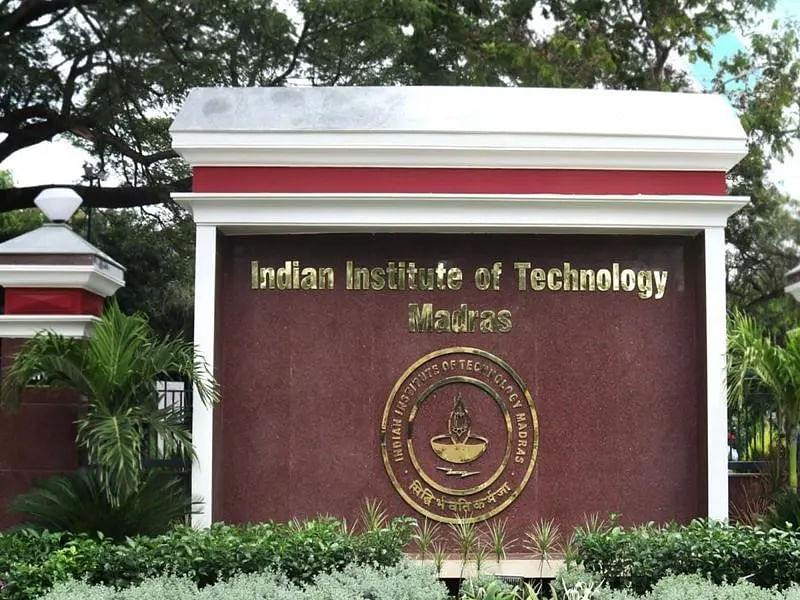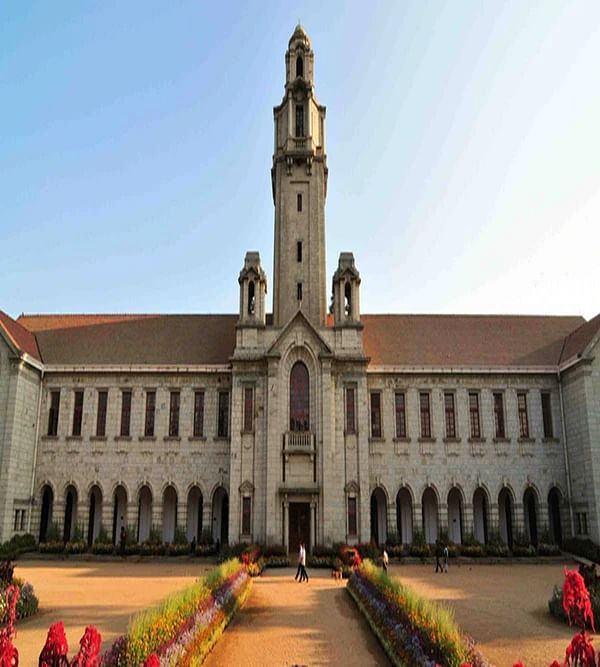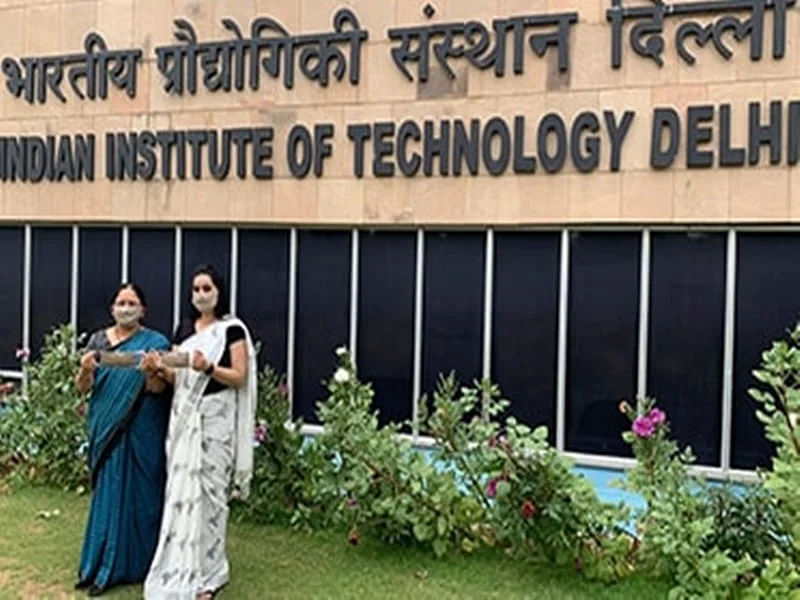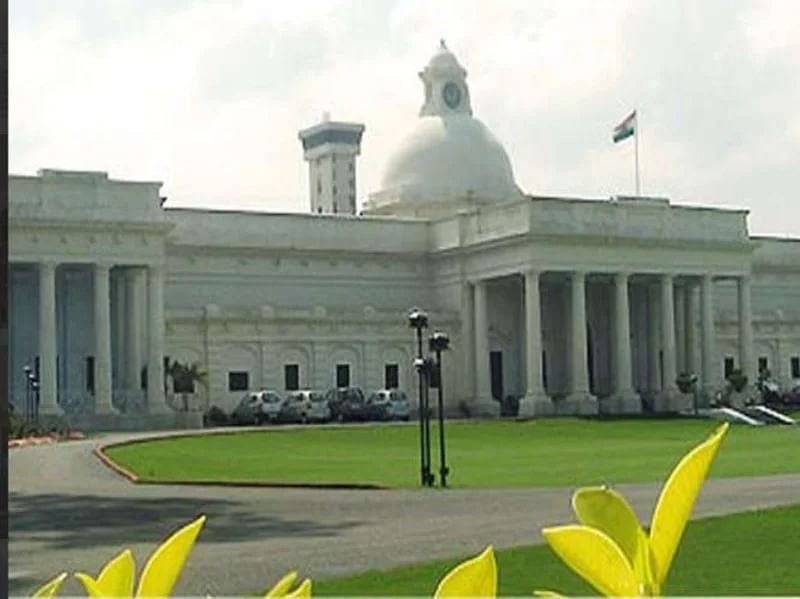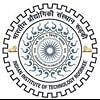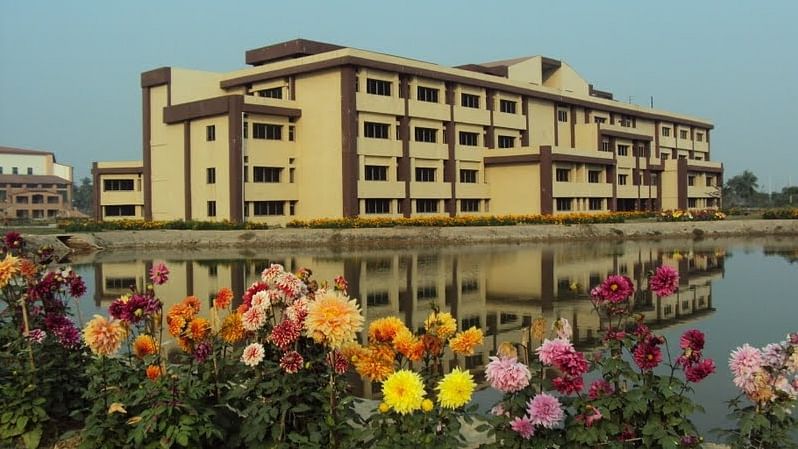MSc: Full Form, Course Details, Eligibility, Courses, Fees, Duration

MSc or Master of Science is a 2-year postgraduate program that deals with the advanced studies of engineering, science, and medicine stream with an emphasis on several specializations. The MSc syllabus is well-structured and covers all the fundamental aspects of Physics, Biology, Chemistry, Mathematics, Botany, Biotechnology, Microbiology, etc.
MSc admission requires candidates to have a Bachelor's degree in Science or Technology with a minimum score of 55% from a recognized university. Based on the college requirements, candidates must also qualify for entrance exams such as GATE, BITSAT, IIT JAM, etc. The average MSc fee ranges between INR 3,000 PA to 5 LPA.
In India, MSc course is offered in prominent colleges located in different parts of the country, the top colleges in Bangalore include the Indian Institute of Science, Bangalore, in Chennai MSc courses are offered by Anna University, Madras University, etc, whereas the college in Pune includes IISER, Pune.
Table of Contents
- About MSc Course
- MSc Eligibility Criteria
- Why Choose Master of Science Courses?
- MSc Admission 2024
- MSc Entrance Exam
- MSc Courses List
- Top MSc Colleges in India with Fee Details
- Types of MSc Courses
- MSc Syllabus and Subjects
- MBA vs MSc
- MSc Graduate Salary in India
- Courses After M Sc
- Career Options After MSc
- MSc Scholarship
- Skills to Excel as a MSc Graduate
MSc Course Details
| Degree | Masters |
| Full Form | Master of Science |
| Duration | 2 Years |
| Age | No age limit |
| Entrance Exam | BHU-UET, OUCET, MGU-CAT, IIT JAM |
| Minimum Percentage | 55% |
| Average Fees | ₹10K - 3 LPA |
| Average Salary | INR 4 - 10 LPA |
| Employment Roles | Chemist, Biology Researcher, Clinical Research Specialist, Geneticist, Lecturer, etc. |
| Top Recruiters | General Electric Co, Biocon, Genpact, Dr. Reddy's Laboratories Ltd, etc. |
About MSc Course
MSc full form stands for Master of Science, a postgraduate course designed to impart theoretical and practical knowledge into the core functionalities of scientific fields. The course offers various specializations in the field like agriculture, mathematics, computer science, botany, life science, etc.
MSc job scope is extensive as students can acquire several job opportunities such as Data Scientist, Chemist, Clinical Research Specialist, Lecturer, etc. The average entry level MSc salary ranges from INR 4 - 10 LPA and after having five-plus years of experience can earn more than INR 15 LPA.
MSc Eligibility Criteria
The basic MSc qualification requires fulfillment of various parameters like education background, entrance exam score, SOP, etc. The basic MSc eligibility criteria are given below:
- The candidate should have completed a BSc or BTech degree with a minimum of 55% marks for the general category and 5% relaxation in marks is given to reserved category students. Students also need to clear entrance exams like IIT JAM, GATE, UPCET, etc.
- Some colleges may also prefer students to have a minimum of 2 years of work experience.
- There is no age limit for applying to an MSc course.
Why Choose Master of Science Courses?
Students who want to pursue the Master of Science should evaluate the MSc course details beforehand to ensure that they are familiar with the course curriculum thoroughly. Students frequently have several questions before enrolling for an MSc degree that includes MSc course benefits and "Who Should Pursue M Sc? " etc.
Here are some of the following points to highlight the several benefits of pursuing an MSc course:
- According to IBEF, the nation's R&D expenditures in Science and Technology are expected to reach almost 2% of its GDP in FY22 - FY 23.
- There has been significant improvement in scientific research and innovation across the country as global companies invest in several science fields' infrastructure and technology.
- The course helps graduates to obtain relevant knowledge in Medicine, Science, and Engineering.
- The science and technology sector has generated 1,497,501 jobs across the country, which makes the future scope of the Master of Science adequately opportunistic.
- There are several job opportunities for students after the MSc degree, such as Biology Researcher, Geneticist, Taxonomist, Science Advisor, Lecturer, Oceanographer, Doctor, Biochemist, etc.
- Graduates of MSc have a great opportunity to pursue Higher studies to enhance their professional growth and industry-based skills, including Ph.D. and M.Phill.

MSc Admission 2024
Applications for MSc registration may be availed from the college website or by directly visiting the admission office of the institute. Some colleges may have an MSc qualification based on merit like UPES, while other institutes need candidates to clear the MSc entrance exam for MSc admission like IISER, Bhopal.
The details of the MSc admission process are listed below:
- Step 1: Students need to clear the MSc entrance exam to become eligible for MSc admission.
- Step 2: The students need to fill out the college application form available in both online and offline modes.
- Step 3: After qualifying MSc entrance exam, students may need to appear for personal interviews and group discussion rounds for final selection.
- Step 4: Students need to provide valid documents for the document verification process after getting selected.
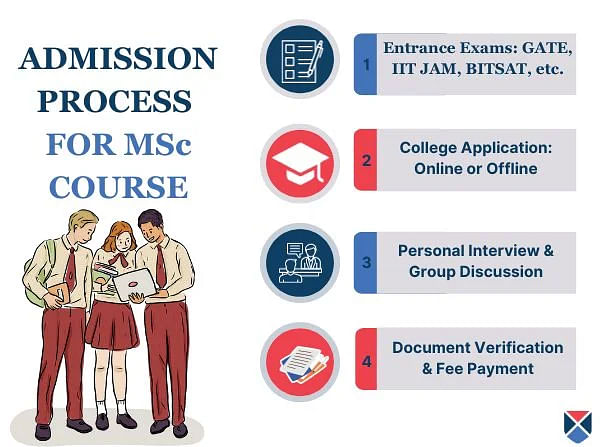
MSc Entrance Exam
The MSc entrance exams are the most common evaluation process of top MSc colleges in India to select potential candidates for MSc admission. Below are the MSc entrance exam details:
| MSc Entrance Exams | Registration Dates | Accepting Colleges |
| GATE | Nov 19-Nov 24, 2023 | Indian Institute of Science, VIT, Anna University, etc. |
| NEST | February 2024- May 2024 (Tentative) | National Institute of Science Education and Research |
| January 2024- April 2024 (Tentative) | BITS Pilani, BITS Goa, BITS Hyderabad | |
| September 2024- November 2024 (Tentative) | IIT Roorkee, Indian Institute of Science, IISER Bhopal, etc. | |
| February 2024-April 2024 (Tentative) | Central University of Gujarat, BHU, University of Hyderabad, etc. | |
| CUCET | February 2024-April 2024 (Tentative) |
Chandigarh University |
| PUCET | April 2024 (Tentative) | Panjab University |
| UPCET | December 2023- January 2024 (Tentative) | IIMT University, AKTU, etc. |
Read More: MSc Entrance Exam
MSc Courses List
MSc full form in education stands for Master of Science which is a postgraduate program that includes various specializations in science-related subjects. Several MSc course details along with a range of MSc specializations offered in India are provided below
- MSc Agriculture
- MSc Mathematics
- MSc Inorganic Chemistry
- MSc Clinical Research
- MSc Physics
- MSc Biochemistry
- MSc Microbiology
- MSc Botany
- MSc Life Science
- MSc Electronics
- MSc IT
- MSc Zoology
This MSc course list represents the popular MSc specialization available.
Top MSc Colleges in India with Fee Details
The average M Sc course fees in India range from INR 3,000 PA to 5 LPA. The varying range of MSc fees in colleges may depend on the institutional facilities, faculty, prestige, infrastructure, and government quotas. The fees in government colleges is in the range of INR 3,000-60,000 PA, whereas the MSc fee in private colleges is in the range of INR 50,000-3 LPA.
The best MSc colleges in India 2024 are listed below:
| Name of the Institute | Average MSc Fees (Tuition) | Admission Fees | Miscellaneous Fees |
| IISc, Bangalore |
INR 16,000 PA |
- |
INR 90,200 PA |
| IISER, Bhopal | INR 33,400 PA | INR 4,000 | INR 15,400 PA |
| IIT, Jodhpur | INR 54,500 PA | INR 3,800 | - |
| IIT, Kanpur | INR 40,925 PA | INR 2,950 | - |
| BITS, Pilani | INR 4.90 LPA | INR 53,900 | - |
| St Xavier’s College, Kolkata |
INR 84,000 PA |
- |
INR 18,000 PA |
| Presidency College, Kolkata |
INR 11,520 PA |
- |
INR 375 PA |
| UPES |
INR 1.46 LPA |
- |
INR 48,600 PA |
| VIT University |
INR 75,000 PA |
- |
INR 1.19 LPA |
| Fergusson College |
INR 1.12 LPA |
- |
INR 48,035 PA |
| Jawaharlal Nehru Technical University, New Delhi |
INR 10,000 PA |
INR 1,000 |
- |
| Christian Medical College, Vellore | INR 42,830 PA |
INR 1,000 |
INR 9,000 |
| Miranda House | INR 8,085 PA |
INR 200 |
- |
| PSG College of Arts and Science |
INR 2,456 PA |
INR 900 |
- |
| University of Hyderabad |
INR 6,770 PA |
INR 3,200 |
INR 2,000 PA |
| St Joseph’s College of Arts and Science, Bangalore |
INR 47,250 PA |
INR 10,000 |
- |
| Chandigarh University, Chandigarh | INR 1 LPA |
INR 2,000 |
INR 20,000 |
| Jain University, Bangalore | INR 1.2 LPA |
INR 2,000 |
INR 25,000 |
| Loyola College, Chennai | INR 85,250 PA |
INR 1,500 |
- |
| CV Raman Global University | INR 80,000 PA | - | INR 1 LPA |
Top City Wise MSc Colleges in India
Below listed are location-wise MSc colleges in India with the average annual fees:
| Location | Average Fees |
| MSc Colleges in Chennai | INR 12,000-1 LPA |
| MSc Colleges in Kolkata | INR 10,000-1.20 LPA |
| MSc Colleges in Delhi | INR 40,000-2 LPA |
| MSc Colleges in Mumbai | INR 30,000-1.70 LPA |
| MSc Colleges in Hyderabad | INR 45,000-2.50 LPA |
| MSc Colleges in Pune | INR 40,000-2 LPA |
| MSc Colleges in Bangalore | INR 40,000-3 LPA |
| MSc Colleges in Kerala | INR 4,000-70,000 PA |
| MSc Colleges in Chennai | INR 35,000-2 LPA |
| MSc Colleges in Jaipur | INR 40,000-2.30 LPA |
| MSc Colleges in Indore | INR 50,000-2 LPA |
Types of MSc Courses
MSc course can be pursued full-time, distance, and through integrated education mode. Below listed is MSc course details:
| Type | Basic Eligibility | MSc Duration |
| Full-Time MSc | BSc or related degree with a minimum of 55% marks for the general category and 45-50% marks for the reserved category+ Entrance Exam Score + GD/PI performance | 2 Years |
| MSc Distance Education | BSc or related degree with a minimum of 50% marks for the general category and 45% marks for the reserved category | 2-4 Years |
| Integrated MSc | 10+2 with a minimum of 55-60% marks for the general category and 5% relaxation for the reserved category+ Entrance Exam Score | 5 Years |
Distance MSc Course
MSc distance education is recognized by UGC-DEB in India and is considered a valuable degree. Below listed are distance MSc course details:
- The distance MSc course can be pursued from colleges like Shivaji University, Osmania University, Jain Online University, etc.
- The average distance MSc course fees is in the range of INR 20,000-45,000 PA.
- The maximum distance MSc course duration can be extended to 4 years.
Integrated MSc Course
There are several colleges that provide integrated MSc courses. The MSc course duration for these colleges depends on the academic structure. The integrated MSc course details are given below along with the MSc eligibility criteria for getting admission to the colleges providing this course.
Integrated MSc Course (BSc + MSc)
It is a five-year program that allows students to simultaneously pursue a bachelor's degree and a master's degree (BSc for the first three years and MSc for the next two years). Below listed is the BSc+MSc course details:
- The eligibility requirements for the course require students to have 60% above in their High school degrees (10+2) from the Science stream.
- The duration of the course is five years.
- The average fee is between INR 2-6 LPA.
- Some of the top colleges for BSc+MSc are VIT, IIT, BIT, DU, YVU, MRIIRS, etc.
Read more: BSc + MSc Integrated Course
Integrated MSc Course (MSc + Ph.D.)
It is a five-year program that allows students to simultaneously pursue a master's and a doctorate (MSc for the first two years and a Ph.D. for the next three years). The Indian Institute of Science (IISc), Bangalore is known for its integrated MSc course.
Candidates can get admission to the integrated M Sc courses through the IIT JAM entrance exam. Below mentioned is the MSc+PhD details:
- The candidate should have completed 10+2 with a 60% score along with passing the MSc Entrance Exam
- The average integrated MSc fee is between INR 2-8 LPA.
- Students can pursue MSc+PhD from top colleges like JNU, IISC, RMVU, KAU, YVU, University of Hyderabad, etc.
MSc Syllabus and Subjects
The syllabus of the MSc degree is structured in such a manner that the students get industry-relevant knowledge and specialized insights into the fundamentals of several scientific studies. The MSc course duration is 2 years. Some of the common subjects for an MSc degree are listed below:
| MSc Subjects | Topics Covered |
| Statistical Analysis | Descriptive Statistics, Inferential Statistics, Regression Analysis, Multivariate Analysis, Hypothesis Testing, etc. |
| Advanced Mathematics | Differential Equations, Real Analysis, Complex Analysis, Numerical Analysis, etc. |
| Analytical Chemistry | Chromatography Techniques, Spectroscopy Methods, Mass Spectrometry, Electroanalytical Techniques, etc. |
| Quantum Mechanics | Schrödinger Equation, Quantum States and Operators, Quantum Entanglement, Quantum Statistical Mechanics, etc. |
Read More: MSc Syllabus and Subjects
MBA vs MSc
MBA degree is focuses on aspects of business and management, whereas, an MSc degree is focused on the advanced study of science, research, and mathematics. Here are some differences between the MSc course and the Master of Business Administration.
| Particulars | MSc | MBA |
| Full-Form | Master of Science | Master of Business Administration |
| Course Overview | The course curriculum focuses on topics like computer science, environmental science, and biomedical engineering. | The course curriculum covers topics like finance, marketing, operations, and strategy. |
| Course Duration | 2 Years | 2 Years |
| Entrance Exam | BHU ET, TISS NET | CAT, MAT |
| Eligibility | 50-60 % in Undergraduate Courses | 50% in Undergraduate courses |
| Specializations | Physics, Mathematics, Chemistry, Biotechnology, etc. | HR, Marketing, Entrepreneurship, Finance, Retail Management, etc. |
| Average Course Fees (INR) | INR 3,000 PA to 5 LPA | INR 3-15 LPA |
| Top Colleges | SXC, Presidency College, Fergusson College | IIM A, IIM B, IIM C |
| Average Salary | INR 4- 10 LPA | INR 4-30 LPA |
| Job Roles | Biostatistician, Clinical Research Associate, Information Security Analyst, etc | Marketing Manager, HR Manager, Financial Analyst, etc. |
Read More: MBA vs MSc
| MPhil vs MSc | MSc vs MTech |
MSc Graduate Salary in India
According to Payscale, the average salary offered to an MSc graduate is INR 4-10 LPA. Variation in salary among Master of Science graduates depends on factors such as industry, skill set, dedication, and diligence. The pay range increases as the experience and skill set of graduates enhance over time. Below is a list of a few MSc jobs with their average and experienced salary range:
|
MSc Jobs |
Entry Level Average Salary |
Salary After 3 Years of Experience |
| Laboratory Manager | INR 3.30 LPA | INR 6.20-9.20 LPA |
| Clinical Research Associate | INR 4 LPA | INR 5-6 LPA |
| Materials Engineer | INR 3.50-4.60 LPA | INR 6.20-7.80 LPA |
| Quantitative Analyst | INR 4-5 LPA | INR 6-10 LPA |
Read More: MSc Salary in India
Courses After M Sc
MSc, full form in education, stands for Master in Science, which is a master's degree in the specialized study of scientific fields and also prepares candidates to obtain higher education to get more knowledge and skillsets. Some of the courses after the MSc degree are listed below:
Read more: MBA after MSc
Career Options After MSc
Career opportunities after MSc are available in both the public and the private sectors. The field and the sector in which the graduates can apply for a job depends highly on the specializations in Master of Science courses. Students who want to take up teaching as a profession after an MSc degree can opt for the NET exam and UPSC for civil service. Listed below are some of the popular MSc job roles that are available to students after graduation
|
Job Designations |
Hiring Companies |
Average Entry Level Salary |
| Research Scientist | Lupin, Man Kind Pharma, TCG Life Sciences, etc. | INR 5.30 LPA |
| Biostatistician | JSS Medical Research, TCS, Micro Labs, etc. | INR 5.70 LPA |
| Information Security Analyst | IBM, TCS, Accenture, Wells Fargo, etc. | INR 5.40 LPA |
| Health Policy Analyst | NTT Data, Omega Healthcare, Access Healthcare, etc. | INR 4 LPA |
Top Recruiters for Master of Science
Below listed are a few top recruiters for graduates with average entry-level salaries:
|
Top Recruiter |
Average Entry-Level Salary |
| Biocon | INR 4-6 LPA |
| HCL Technologies | INR 5-8 LPA |
| Dr. Reddy's Laboratories | INR 4-6.50 LPA |
| Novartis | INR 5-7 LPA |
| Nestle India | INR 4.50-7 LPA |
[Sources: Glassdoor & Ambition Box]
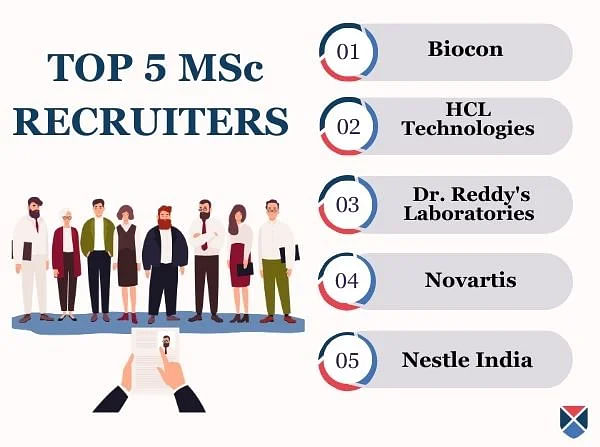
Read more: MSc Job Scope
MSc Scholarship
The Indian government offers several scholarships to students who aspire to pursue MSc courses for financially disabled, minorities, and physically challenged individuals. There are several private and government scholarships available to qualified individuals. The several MSc Scholarships are listed below:
|
Scholarship |
Eligibility Criteria |
Amount |
| IISER Tirupati DST-SERB Junior Research Fellowship |
|
INR 31,000 Per Month |
| Jawaharlal University, Delhi Scholarship | The student should have completed a bachelor's degree in Environmental Sciences, Geology, Biochemistry, Physical Sciences, etc. | Tuition Fee Waiver on Monthly Basis |
| Inspire Scholarship for Higher Education |
|
Upto INR 80,000 annually |
| Sitaram Jindal Scholarship |
|
INR 3,200 Per Month |
Read more: MSc Scholarships
Skills to Excel as a MSc Graduate
MSc demands a very detailed study of the course. One should possess soft and hard skills to perform better in MSc exams and assessments. Some of these skills are listed below:
- Technical Skills: The graduate should be proficient in industry-specific software, and understand programming languages like Python, R, etc., for debugging code.
- Research Skills: The graduates who want to pursue their careers in research and academia should have good research skills like literature review, data analysis, conducting interviews, etc.
- Knowledge of Pharmaceutical Science: The graduate should have the skills to optimize bioprocess and upstream processing while working on cell culture technology.
- Mathematical Modeling Skills: The graduate should be able to create mathematical models to solve practical issues and evaluate and interpret the findings.
Top M.Sc [Master of Science] Colleges
Top Science Entrance Exams
MSc Fee Structure
FAQs on MSc
Q: What is the full form of MSc?
Q: What is MSc in qualification?
Q: Can I do MSc without BSc?
Q: What is the scope of the MSc course?
Q: What is the MSc salary?
Q: Which is better MS or MSc?
Q: What is the eligibility for the M Sc?
Q: Is MSc good or MBA?
Q: What job opportunities are available after M Sc?
Q: Which MSc course is best?
